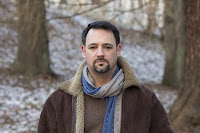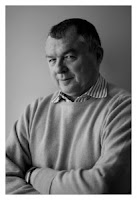This interview with Alison Feeney-Hart appeared in the BBC Entertainment News:
Although she didn't publish her first novel until she was 42, P.D. James had been writing since childhood.
1. You must be born to write
You can't teach someone to know how to use words effectively
and beautifully. You can help people who can write to write more
effectively and you can probably teach people a lot of little tips for
writing a novel, but I don't think somebody who cannot write and does
not care for words can ever be made into a writer. It just is not
possible.
Nobody could make me into a musician. Somebody might be able
to teach me how to play the piano reasonably well after a lot of effort,
but they can't make a musician out of me and you cannot make a writer, I
do feel that very profoundly.
2. Write about what you know
You absolutely should write about what you know. There are all
sorts of small things that you should store up and use, nothing is lost
to a writer. You have to learn to stand outside of yourself. All
experience, whether it is painful or whether it is happy is somehow
stored up and sooner or later it's used.
I love situations where people are thrown together in
unwelcome proximity. where all kinds of reprehensible emotions can
bubble up. I think you must write what you feel you want to write
because then the book is genuine and that comes through.
I believe that someone who can write, who has a feeling for
words and knows how to use them will find a publisher. Because after
all, publishers do still need to find new writers. We all get old and we
die and that's that and there have to be successors.
3. Find your own routine
I think all we writers are different. It's interesting, isn't it, how different we are?
Some people have to have the room, the pen and others do
everything on a computer. I write by hand and I can write more or less
anywhere as long as I've got a comfortable chair, a table, an unlimited
amount of biros to write with and lined paper to write on. And then the
next day when my PA comes, which she does at 10 o'clock, then I've got
quite a lot to dictate to her and she puts it on to the computer, prints
it out and I do the first revision.
In a sense, therefore, I revise as I go. It's important to
get up early - before London really wakes and the telephone calls begin
and the emails pile up. This is the best time for me, the time of quiet
in the morning,
4. Be aware that the business is changing
Goodness gracious, how the world of publishing has changed! It
is much easier now to produce a manuscript with all the modern
technology. It is probably a greater advantage now, more than ever
before, to have an agent between you and the publisher.
Everything has changed and it's really quite astonishing,
because people can self-publish now. I would once have thought that that
was rather a self-defeating way of doing it but actually publishers do
look at what is self-published and there are examples of people picking
up very lucrative deals.
5. Read, write and don't daydream!
To write well, I advise people to read widely. See how people
who are successful and good get their results, but don't copy them. And
then you've got to write! We learn to write by writing, not by just
facing an empty page and dreaming of the wonderful success we are going
to have. I don't think it matters much what you use as practice, it
might be a short story, it might be the beginning of a novel, or it
might just be something for the local magazine, but you must write and
try and improve your writing all the time. Don't think about it or talk
about it, get the words down.
6. Enjoy your own company
It is undoubtedly a lonely career, but I suspect that people
who find it terribly lonely are not writers. I think if you are a writer
you realise how valuable the time is when you are absolutely alone with
your characters in complete peace. I think it is a necessary loneliness
for most writers - they wouldn't want to be always in the middle of
everything having a wonderful life. I've never felt lonely as a writer,
not really, but I know people do.
7. Choose a good setting
Something always sparks off a novel, of course. With me, it's
always the setting. I think I have a strong response to what I think of
as the 'spirit of a place'. I remember I was looking for an idea in
East Anglia and standing on a very lonely stretch of beach. I shut my
eyes and listened to the sound of the waves breaking over the pebble
shore. Then I opened them and turned from looking at the dangerous and
cold North Sea to look up and there, overshadowing this lonely stretch
of beach was the great, empty, huge white outline of Sizewell nuclear
power station. In that moment I knew I had a novel. It was called
Devices and Desires.
8. Never go anywhere without a notebook
Never go anywhere without a notebook because you can see a face
that will be exactly the right face for one of your characters, you can
see place and think of the perfect words to describe it. I do that when
I'm writing, I think it's a sensible thing for writers to do.
I've written little bits of my next novel, things that have
occurred to me. I've got the setting already. I've got the title, I've
got most of the plot and I shall start some serious writing of it next
month, I think.
9. Never talk about a book before it is finished
I never talk about a book before it is finished and I never
show it to anybody until it is finished and I don't show it to anybody
even then, except for my publisher and my agent. Then there is this
awful time until they phone.
I'm usually pretty confident by the time I've sent it in but I
have those moments when I think, 'well I sent it to them on Friday, by
Saturday night they should be ringing up to say how wonderful it is!'
I'm always aware that people might have preferences and think that one book is better than another.
10. Know when to stop
I am lucky to have written as many books as I have, really, and
it has been a joy. With old age, it becomes very difficult. It takes
longer for the inspiration to come, but the thing about being a writer
is that you need to write.
What I am working on now will be another detective story, it
does seem important to write one more. I think it is very important to
know when to stop.
Some writers, particularly of detective fiction, have
published books that they should not have published. I don't think my
publisher would let me do that and I don't think my children would like
me to. I hope I would know myself whether a book was worth publishing. I
think while I am alive, I shall write. There will be a time to stop
writing but that will probably be when I come to a stop, too.





































